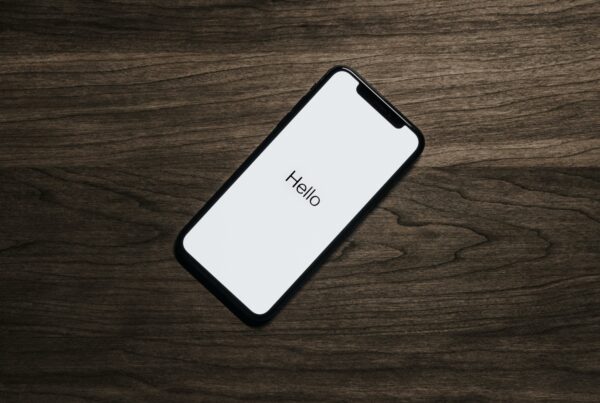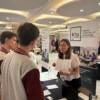Imagine walking into a massive festival, skipping the long lines, and simply tapping your wristband to enter – no fumbling for tickets, no scanning barcodes, just seamless access. That’s the magic of RFID (Radio Frequency Identification).
If you’ve ever attended a big event—whether it’s a music festival, trade show, or sports game – you know how chaotic check-ins can get. Long queues, slow ticket scanning, and frustrating delays can quickly set the wrong tone for an event. RFID is changing that by making check-ins faster, reducing fraud, and collecting valuable data that helps organizers deliver a better experience.
Let’s dive into how RFID is streamlining event management and why it’s becoming a game-changer for both organizers and attendees.
What Exactly is RFID?
RFID is a wireless technology that uses radio waves to transfer data between a small chip (an RFID tag) and a reader. These tags can be embedded in wristbands, badges, or even stickers, and they don’t require direct scanning like barcodes. Instead, they’re detected automatically when they come close to an RFID reader.
A basic RFID system consists of:
- RFID Tags – Small chips containing unique ID information.
- RFID Readers – Devices that scan the tags when they come into range.
- Backend Software – A system that processes and stores all the collected data.
As RFID tags require little human intervention, they speed up check-in, reduce errors and enable real-time monitoring – which is why event organizers are increasingly adopting this technology.
Take a look at our smart badges, smart wristbands and smart wine glass solutions powered with RFID technology.
How RFID is Revolutionizing Event Check-Ins
1. Say Goodbye to Long Lines
We’ve all been there – standing in a never-ending line, waiting for someone to check our ticket or scan a barcode. RFID eliminates this headache. With just a quick tap or wave of an RFID wristband, attendees can enter an event in seconds. This is especially useful for high-traffic events where thousands of people need to get through the gates quickly.
To delve deeper into the benefits of RFID for streamlining check-ins, read Unlocking the Benefits of RFID Technology for Events.
2. No More Ticket Fraud or Unauthorized Entry
Fake tickets are a nightmare for event organizers. With traditional paper tickets and barcodes, it’s easier for people to duplicate or resell them fraudulently. RFID makes fraud nearly impossible because each RFID tag has a unique code that can’t be copied. Organizers can also assign different access levels—so only VIPs can enter certain areas, and staff can have restricted access as needed.
3. Easy Re-Entry for Multi-Day Events
If you’re attending a three-day festival or a multi-day conference, you don’t want to dig out a ticket every time you come back. RFID wristbands or badges allow for seamless re-entry, making life easier for both attendees and event staff.
Choose the right digital tools for muilti-day events like music festivals.
Beyond Check-Ins: How RFID Supercharges Data Collection
1. Real-Time Insights on Attendee Behavior
One of the coolest things about RFID is the ability to track and analyze attendee movements. Every time someone taps their RFID tag—whether at an entrance, an exhibitor booth, or a merchandise stand—that data is collected.
This means event organizers can see:
- How many people checked in and at what time.
- Which sessions, booths, or areas were the most popular.
- How long attendees stayed in different parts of the venue.
With this kind of insight, organizers can make smarter decisions – like adjusting event layouts, staffing levels, or scheduling to better match attendee behavior.
2. More Personalized Experiences
RFID data can be used to customize the attendee experience. For example, at a trade show, when an exhibitor scans an attendee’s RFID badge, they instantly get access to their name, company, and interests – allowing for more meaningful interactions instead of just handing out generic brochures.
In entertainment events, RFID can be integrated with interactive experiences, like triggering personalized messages on big screens or sending special offers based on an attendee’s preferences.
3. Making Networking Easier
Ever been to a networking event where you run out of business cards? With RFID, attendees can simply tap their badges to exchange contact information, saving everything digitally. Later, they can access a list of all the people they met, making it much easier to follow up after the event.
For insights into data collection and lead capture, beamian’s Event Lead Capture page offers valuable information.
RFID and Cashless Payments: A Game-Changer for Events
1. Faster, Hassle-Free Payments
Nobody likes waiting in long lines for food, drinks, or merchandise. With RFID-enabled wristbands, attendees can make cashless payments by simply tapping their wristband at a vendor’s terminal. No need to carry cash or worry about card machines failing – it’s fast, secure, and hassle-free.
2. Vendors Benefit Too
For vendors, RFID payments mean quicker transactions and less handling of cash, which reduces theft risks and accounting errors. Plus, organizers can track which items sell best and restock accordingly.
To explore RFID’s role in cashless transactions, take a look at the article Enhancing the Festival Experience with RFID Ticketing.
RFID in Action: Real-World Success Stories
Coachella Music Festival
One of the biggest music festivals in the world, Coachella, replaced traditional tickets with RFID wristbands. The result? Faster entry, reduced fraud, and increased attendee spending thanks to cashless payments.
CES (Consumer Electronics Show)
At CES, attendees wear RFID badges that track which booths they visit. This data helps exhibitors understand visitor interests and follow up with the right people after the event.
Disney’s MagicBands
Disney parks use RFID-powered MagicBands to streamline everything from ride access to hotel room keys to food purchases, making the guest experience smoother and more enjoyable.
Gather insights on our case study: Case of Success: Managing Internal Events with RFID Company Cards.
What’s Next? The Future of RFID in Events
As technology continues to evolve, RFID is set to become even more powerful. Here are some exciting trends on the horizon:
- AI Integration – Imagine RFID combined with AI to predict attendee behavior and optimize event logistics in real time.
- Blockchain Security – Blockchain could enhance RFID security, making data even more secure and tamper-proof.
- Hybrid RFID & NFC – More events are exploring hybrid models where RFID works alongside smartphone-based NFC for added convenience.
Augmented Reality (AR) Experiences – RFID could trigger AR experiences, allowing attendees to interact with digital content in real time.
RFID is Here to Stay
RFID isn’t just a trend – it’s a revolution in event management. From speeding up check-ins and enhancing security to collecting valuable data and enabling cashless payments, RFID is making events smoother, smarter, and more enjoyable for everyone involved.
As the technology continues to evolve, its impact will only grow, shaping the future of live experiences in ways we can’t even imagine yet. So, whether you’re an event organizer looking to improve efficiency or an attendee craving a hassle-free experience, RFID is the key to a smarter, more connected event world.
Ready to empower your event with RFID technology? Let’s talk!








